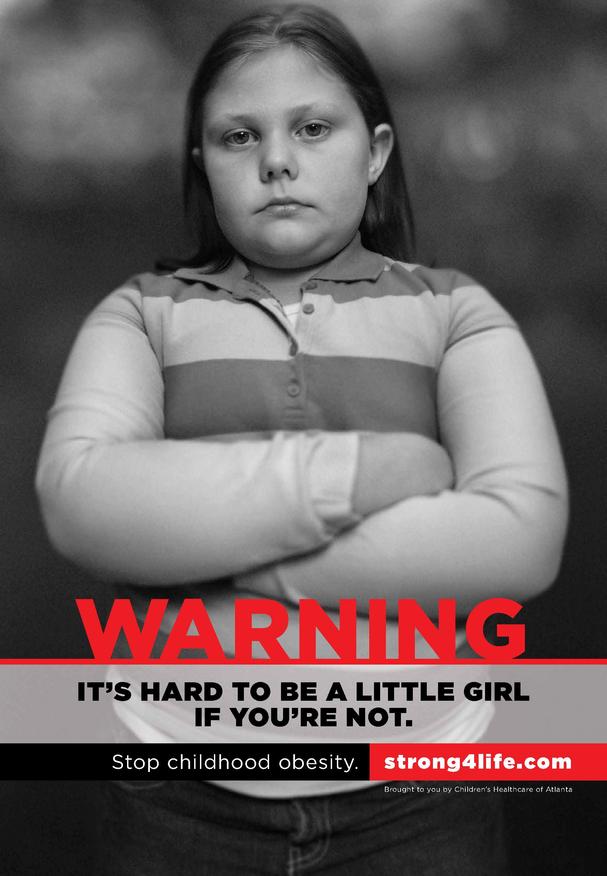
Distinguishing Empowerment, Empathy, and Pity
Two days into a week of intense meetings about obesity science and policy at #ECO2021 and #COS7, one thing is hard to miss. The quality of research and analysis is strong. But people living with obesity are front and center. In fact, we see strong confident voices for persons living with obesity. Not sad victims. These are people leading sessions on weight stigma and policy. They are researchers and scientists. Their aspirations for health and fulfillment illustrate something important in framing the subject of obesity for the public and policymakers. In short, the difference between empowerment, empathy, and pity can make a huge difference in how we think about obesity.
Images of Sad Children with Obesity
 One way of framing obesity is all about tragedy. Images of pathetic and dehumanized people living with obesity have dominated for years. But that has served mainly to reinforce bias about obesity and the stigma of this condition.
One way of framing obesity is all about tragedy. Images of pathetic and dehumanized people living with obesity have dominated for years. But that has served mainly to reinforce bias about obesity and the stigma of this condition.
A decade ago, Children’s Healthcare of Atlanta wanted to jolt parents into doing something about obesity in their children. Their campaign of billboards and videos featuring sad children with obesity served mainly to amplify shame and self-stigma. That campaign accomplished little. But it did spark a conversation about fat shaming. It served as a prime example of what not to do if you want to help.
Though fat shaming campaigns don’t pass muster today, we see examples every day of implicit bias. They dehumanize people as faceless bellies and butts. Children with obesity are objects of pity.
Empathy Rather than Pity
To diminish a person is quite easy. Label them as pitiful. Bless their heart. But pity is not the same thing as empathy.
Some people study obesity purely as an intellectual pursuit of science. Empathy is beside the point. These are people who want to answer hard questions. They want to add to knowledge for its own sake. And of course, this is good.
However, for many other people, obesity has a profound effect on their lives – or the lives of people they love. A scientific understanding of obesity is one step toward reducing its impact. But it’s useless without translating the knowledge into clinical practice and health policy. Empathy is a good place to start.
Empowerment to Overcome Stigma
Right now, stigma and bias get in the way of progress. The presumption that people with obesity are pathetic because they have brought their condition on themselves – or because they’re hopeless – is a pernicious narrative. It gives policymakers permission to turn away. Health plans have implicit permission to deny access to obesity care.
When well-intended persons depict people – especially children – as pathetic objects of pity, they are making the problem worse. When #ECO2021 and #COS7 put wise and strong people with obesity front and center, they push in a better direction. They offer empowerment grounded in empathy, discarding the pity narrative.
Click here for more on the difference between empathy and pity. For perspective about building on aspirations in messages about obesity, click here.
Family Time, photograph © World Obesity Federation
Subscribe by email to follow the accumulating evidence and observations that shape our view of health, obesity, and policy.
May 12, 2021

May 15, 2021 at 5:21 am, Mary-Jo said:
It has been such a joy to have people with obesity featured, front and center, as eloquent, intelligent, insightful voices of key elements needed for effective understanding and solutions to obesity. ‘Presumptuousness’ about the disease and people with obesity has really been a huge obstacle to applying the science and executing proper care, improving access to care whilst only ‘experts’ were/are involved approaching obesity as a specialty or ‘cause’. I’m not discounting the contribution of experts, by any means, I just have noticed over the years a tremendous openness and execution of effective changes when people with the disease became more involved. For me, witnessing a person who did not treat me very well, who presumed I was not a good dietitian or perhaps silly or stupid, who often made me feel invisible, evolve into a person who is now a tremendous, compassionate advocate for people with obesity — well, that has given me such hope and assurance that things will change for the better!